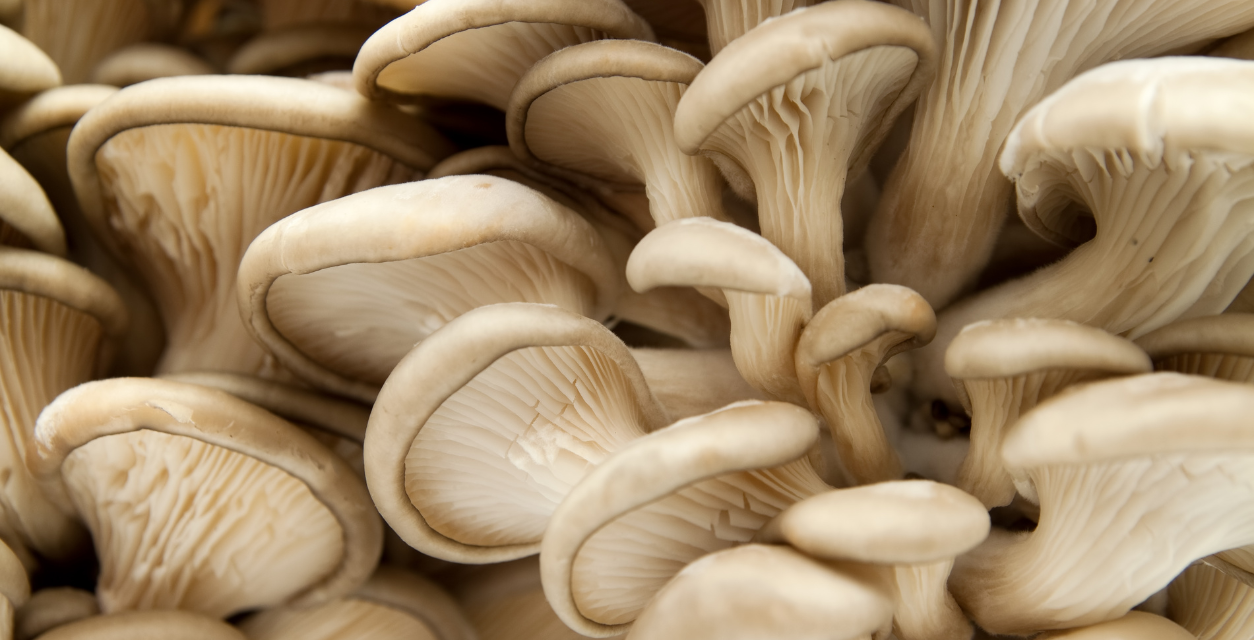Should I Eat More Fungi?
The lowly fungi family may not top your list of healthy veggies, but hang on, you’re about to get “vegucated” about mushrooms! First of all, there are thousands of species of mushrooms—but only about 25 are widely accepted as food. And each is appreciated for different nutrients.
Also, if you like to eat with the planet in mind, fungi are also earth-friendly. They use only 1.8 gallons of water per pound; and 7 pounds of mushrooms can be produced per square foot of land!
Health Benefits
Mushrooms were respected by ancient cultures. In fact, Greeks believed they provided strength for warriors in battle; Romans thought of them as “Food of the Gods” and the ancient Chinese treasured them as an “elixir of life”. So, it’s no surprise that there’s great interest today in their pharmaceutical potential.
Most importantly, according to this review, mushrooms have antioxidant activity, anti-hypertensive activity, hypocholesterolemic activity, liver protection, as well as anti-inflammatory activity, anti-diabetic activity, anti-viral activity, and anti-microbial activity.
Mushrooms are also surprisingly high in these nutrients:
Immunity
Selenium: Important for your body to prevent cell damage. Just 4 cremini mushrooms have 38% of the Daily Value (DV). 5 medium button mushrooms have 15% of the DV.
Vitamin D: Needed for strong bones but also important for cell growth, the immune system and for fighting inflammation. (Your body needs vitamin D to absorb calcium from food.) Mushrooms are one of the few vegetables that naturally contain vitamin D. Even more, those that are exposed to UV light produce even more vitamin D! Five medium mushrooms exposed to UV light (this is listed on the label) contain 113% of the DV of vitamin D.
Vitamin B6: Helps your body turn food into energy and helps in the formation of neurotransmitters, red blood cells and DNA. 4 whole Shitake mushrooms have 13% of the DV of B6.
Super Nutrients
Ergothioneine: a naturally occurring antioxidant that may help protect the body’s cells from damage.
Beta Glucans: The main carbohydrate found in mushrooms is thought to be important for anticancer, immunomodulating, anticholesterolemic, antioxidant, and neuroprotective activities. Shitake mushrooms contain high levels of beta-glucans.
Phenolic compounds: provide protection against brain dysfunction, cancer and cardiovascular disease due to their excellent antioxidant capacity. The most cultivated mushroom, Agaricus bisporus (button), have some of the highest content of phenolic compounds.
Prebiotics: Some of the carbs that mushrooms contain are prebiotics that can change the composition of gut microbes for the better. The gut microbiota plays an important role in digestive health and also influence the immune system.
Quick Ways to Eat
- Slice them in a salad
- Grill a Portobello for a plant-based burger
- Sauté them to put in eggs, pasta, sauces or to go with other veggies
- Chop them to the consistency of ground meat and blend them with the meat. Cook the meat as usual. This adds nutrition but also extends your meat and lowers the fat content. Find more at The Blended Burger Project®.
- Add a coating and cook up in your air fryer
I hope I’ve inspired you to eat more fungi! Find lots of yummy recipes here. Want more inspiration to eat more veggies, join my One More Veggie Challenge: a month of tips, tricks and recipes to eat one more veggie a day!
Find more from Bridget here.












